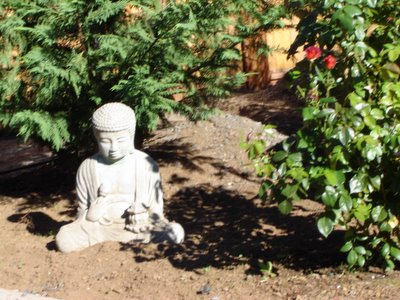
Events in my life in the last few weeks have caused me to look more closely at my motivations and state of mind in my efforts to bring peace into the world. I am currently studying "Change of Heart - The Bodhisattva Peace Training" by Chagdud Tulku Rinpoche.
I want to share this excerpt from the book:
"Such compassion--the desire to alleviate the suffering of all beings equally--is part of the meaning of the Sanskrit term "bodhisattva." Bodhi refers to wisdom mind, which is completely selfless. Sattva can be translated as "hero". A bodhisattva is someone who has taken on the sole task of meeting the needs of others, no matter how difficult that might be. His self-centerdness has been reduced to the point where wisdom, love and compassion arise naturally, benefiting any situation..............."
"For the spiritual power of peace to touch every person on this earth, it must radiate out from profound peace within our own mind: across political and religious barriers, and across the barriers of ego and self-righteousness. To this end, we should seek an inner peace so pure and stable that we cannot be moved to anger by violence or to selfish attachment and fear by those who view or confront us with contempt and hatred. We can achieve such stability only by purifying mind's poisons--ignorance, anger, attachment, jealousy and pride; then we can clearly see that war and suffering are but their outer reflections. The essential difference between true peace-makers and those who wage war of any sort is the presence of extraordinary patience and discipline in the minds of the peacemakers as they work with these pervasive poisons. If we truly understand this, we will never allow ourselves to be defeated from within or without."
"In Tibetan Buddhism, the peacock symbolizes the bodhisattva. A peacock is said to eat poisonous plants, transforming their toxins into the radiant colors of its feathers. It does not poison itself. In the same way, we who advocate peace must not poison ourselves with anger but regard with equanimity those who perpetrate violence, remaining constantly aware of our own state of mind. If we become angry in our efforts, we must pull back and regain our compassionate perspective. Without anger, perhaps we will penetrate the terrible delusion that gives rise to violence and hellish suffering."
Peace,
SpringWind
No comments:
Post a Comment